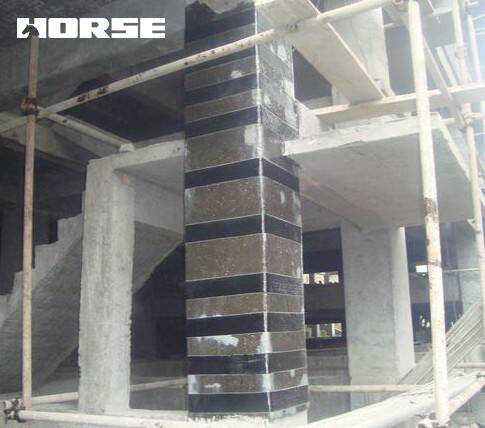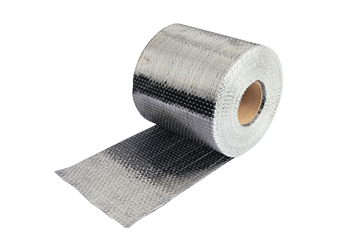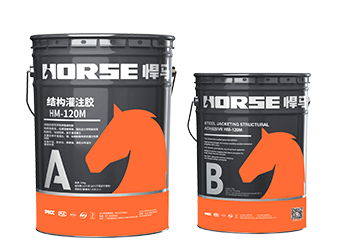Solutions
Horse Construction offers full range of structural strengthening materials with technical supports, documentation supports, products supports, project supports.
Carbon fiber strengthening frame columns

Strengthening Materials
Carbon fiber reinforced composite materials, because of their excellent mechanical properties and chemical stability, are highly valued in the field of international civil engineering reinforcement and repair and have been widely used and developed. In recent years, more and more applications have been applied in the repair and reinforcement of domestic concrete structures.
Carbon fiber reinforcement technology is the use of adhesives to paste carbon fiber sheets on the surface of concrete members, so that concrete and carbon fiber sheets are integrated into a composite body. Through the cooperative work with the structure or components, the purpose of reinforcing and strengthening the structural components and improving the performance of the force are achieved. It is a very simple and excellent reinforcement method
Project Overview
A residential building with a bottom floor is a 6-story bottom-frame structure house with a rectangular plane, a length of 42.3 m and a width of 14.6 m. The total construction area is about 3 903.72 square meters. The first and second floors are commercial, and the third to sixth floors are residential. The total height of the house is 20.1 m, the height of the 1st floor is 3.9 m, the height of the 2nd floor is 3.7 m, and the height of the 3rd to 6th floors is 2.8 m.
The residential building uses a reinforced concrete strip foundation under the column. The frame beams and columns of the 1st and 2nd floors are made of cast-in-place reinforced concrete, the concrete strength grade is'C20, and the floor slab is C30.3 to 6th floors are masonry structures, which are made of MU10 concrete porous bricks and M10 mixed mortar. 370 mm, inner wall thickness 240 mln. The floor slab is cast-in-place reinforced concrete, except for the local slab thickness of 120 mm, the rest of the slab thickness is 100 mm. The house adopts cast-in-place reinforced concrete slab stairs, and the roof adopts sintered clay tile roof.
After the completion of the main body of the residential building, in the main experience collection process, the bottom frame part 1 and 2 floors of KZ2a (corner column) and KZ2 (middle staircase) total 16 frame column stirrups were not encrypted according to the drawings , the location is shown in Figure 1.

In order to ensure the shear resistance of the frame columns and meet the design requirements of the construction drawings, a total of 16 frame columns on the first and second floors of the residential building need to be reinforced. Decided to adopt the reinforcement technology of sticking carbon fiber hoop + crimped steel plate to carry out seismic reinforcement of the frame column.
Design plan and strengthening materials
Because of the concrete shear wall on the side of the frame column, it is difficult to realize the carbon fiber closed hoop. Therefore, the technology of sticking carbon fiber hoop + crimping steel plate is adopted for seismic reinforcement.

Summary
Through the use of carbon fiber reinforcement, the shear resistance of the frame column can be effectively improved to meet the original drawing design requirements.
You can find anything here you are in need of, have a trust trying on these products, you will find the big difference after that.

High strength, unidirectional carbon fiber wrap pre-saturated to form a carbon fiber reinforced polymer (CFRP) wrap used to strengthen structural concrete elements.

Modified epoxy resin structural perfusion adhesive, specifically for supporting adhesive bonded steel reinforcement

High strength, unidirectional carbon fiber sheet pre-saturated to form a carbon fiber reinforced polymer (CFRP) sheet used to strengthen structural concrete elements.